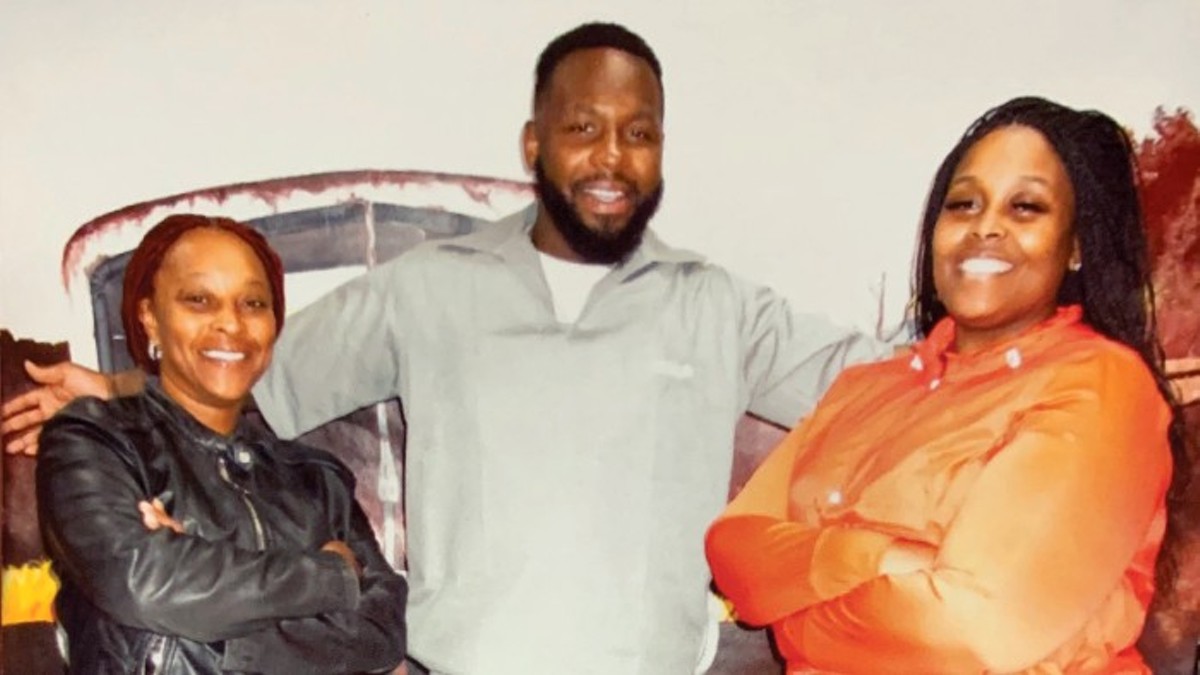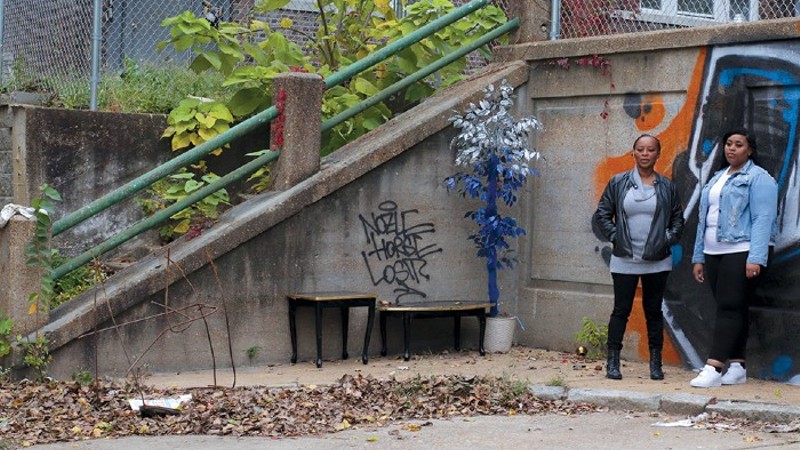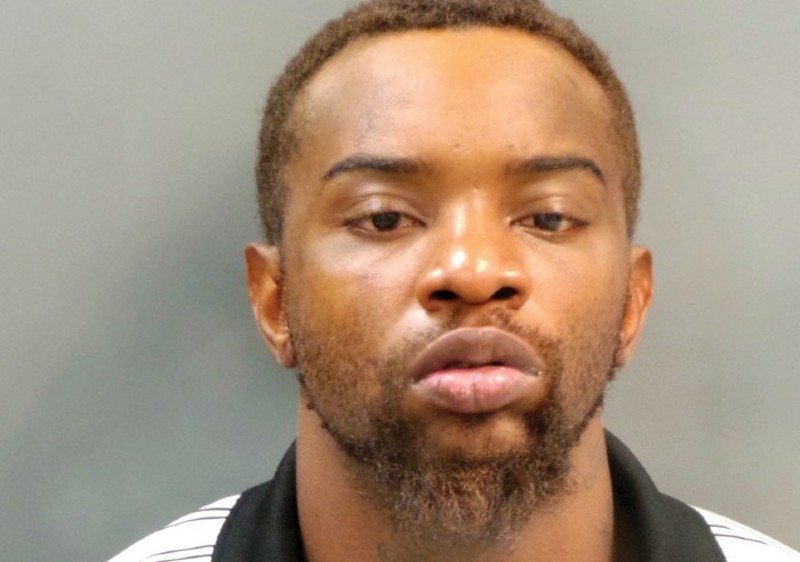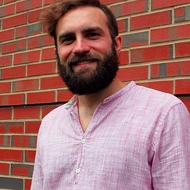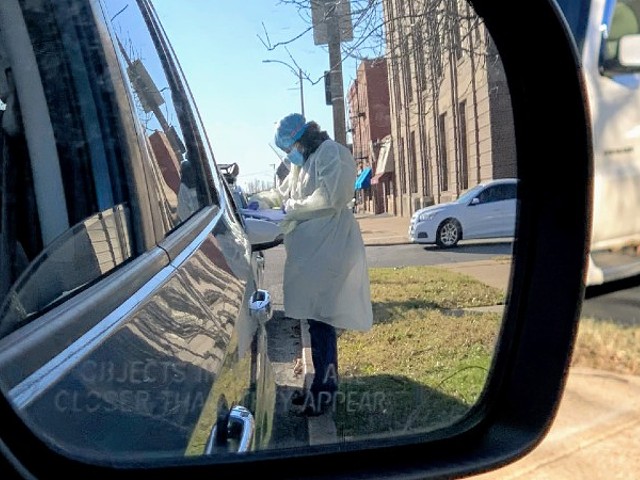In the spring of 2011, Marian Jolliff, an arborist for the forestry division of St. Louis' parks department, was at home after work when she got a call from the man who put her son in prison for 28 years.
Shelton Buchanan was calling to say how sorry he was. Just a few years prior, when Jolliff's son, Felix Key, was in high school, Buchanan had been his enemy, once going so far as to beat him unconscious. But that's not what Buchanan was calling about. In April 2009, he had been shot in south St. Louis, and he told everyone who would listen that Key was the gunman. Key was arrested, tried and found guilty of armed criminal action for the shooting, thanks almost entirely to his rival's testimony.
By the time of Buchanan's phone call, Key was already a few months into a 28-year sentence. Now, Buchanan was telling Jolliff he'd lied on the stand. He felt bad about it. He hadn't known her son would get locked up for so long.
"Basically he was explaining it wasn't supposed to go this far," Jolliff says.
According to the mother, Buchanan told her, "I didn't think they would give him so much time. I'm sorry. I don't know what to do. Your son and I always had our differences. We were, you know, at each other, but I don't want to see him spend the rest of his life behind bars."
Jolliff says that, "as a mother," she really didn't know what to think about the call. As far as she was concerned, Buchanan had tried to kill her son twice: first out on the street with his fists, then in the courtroom with his false testimony.
"My son is doing twenty years, and you've called me talking about being sorry," she says. "I just, I don't know ...."
I didn't know what to think either when Key's wife, Latasha Kates, first contacted me about this story. Would a person really send an innocent man to prison because they were "at each other," even if doing so meant letting the person who had actually tried to kill him go free? I had my doubts. Then I saw the video.
Taken by a private investigator and made public for the first time by the Riverfront Times, the video shows Shelton Buchanan seated calmly at a table in a private residence.
The private investigator doesn't waste any time.
"On April 15, 2009: Do you know who shot you?"
"No."
Later, the investigator asks, "Were you coerced or forced to come to the trial to testify against [Key]?"
"Yes, I was trying to stop, I didn't want to have nothing to do with it anymore, but they told me they were going to subpoena me and make me go."
About halfway through the four-minute-long deposition, the investigator gets to the heart of the matter. "Did Felix Key shoot you?"
"No."
The Dead End of Oregon
By the time Felix Key was seventeen, he'd already been shot multiple times, a fact that he says was partially his fault given that as a kid he had a love for fighting.
"I wanted to be a boxer," he wrote to me in a letter. "But it got me in a lot of trouble."
He went to Roosevelt High School in Tower Grove East, though he says that it was less of a school than "a meeting place" where kids who hadn't gone to class in years would sneak drugs and weapons in through side doors to evade the police officer patrolling the halls.
He lived with his mom at his grandmother's house in Gravois Park, near "the dead end of Oregon," a block where Oregon Avenue abruptly stops at a chain link fence and graffitied wall. A single set of stairs lets pedestrians through, but cars need to find a different route. The lack of traffic made it a good spot to hang out. Key was a big kid. His friends called him "fats." But he was also quicker than most of them, and his combination of size and speed made him a formidable athlete. Throughout the early '00s, the dead end of Oregon kids feuded with the "Cave" kids from Compton Avenue up the road. One of those Cave kids was Shelton Buchanan.
In the deposition, the investigator asked Buchanan about his relationship with Key.
"We knew each other through rival gangs."
Key wrote to me about Buchanan: "My friend probably had an incident with one of his friends and vice-versa. To prove to your friend that you're a loyal person you're going to be right in that situation with your friend. The word loyal can get to a point where you're at fault trying to be so loyal."
On July 2, 2007, Key, who had turned seventeen that spring, was walking in his neighborhood when, he says, Buchanan and six other Cave kids rolled up on him, chased him up a flight of stairs and beat his head with a brick. Someone stabbed him with a bottle. He was found unconscious alongside Miami Street and taken to the hospital where he lay in a coma for four days.
When Key got out of the hospital, his mother says she made him go down to the police station and file charges.
The police picked up Buchanan, charging him with assault. The charges were dropped before trial, but he spent six months in jail because he couldn't make bond. He blamed Key for the time spent locked up, claiming the teen had ratted him out to the cops.
Key recovered from the attack, but he was leery of returning to school. The next time he went to Roosevelt, afraid of getting jumped again, he brought a gun with him. A police officer at the high school caught him with the firearm. While out on bond for that gun charge, he got in trouble again for shooting a gun wildly into the air.
Key, who was still seventeen, was convicted of unlawful use of a weapon and served an eighteen-month sentence, the first portion at St. Louis' Juvenile Detention Center before transferring to the city's Justice Center.
In all of Key's letters to me he goes out of his way to say that he's not perfect. One of the first things he wrote to me was to not believe what his wife and mother say about him, because they see him through rose-colored glasses. His mother talks about her son's humor, his unrelenting positive attitude, the years he spent as a kid accruing badge after badge in the Boy Scouts. All that is true, but Key also talks about the mistakes he made as a young person.
"I'm not against me having to open my eyes while being locked up," he says about the eighteen- month sentence. "I really needed it."
After his release in 2009, at nineteen, he was determined to not go back. He moved in with his mom, who was now living near Dellwood, far away from Shelton Buchanan and the dead end of Oregon. His dad was "heavy into drugs." Key never really got to know him, but in north St. Louis County, he had his mom as well as an uncle and five cousins to keep him out of trouble.
On April 15 of that year, the day Shelton Buchanan was shot, Key had been a free man for less than a month. He says he stayed home that night, as he did most nights, with his family.
In south city, Shelton Buchanan was also at home. His friend Dominique Darden came over to get some pills from him. But, according to testimony Buchanan would later give, he had already tried the pills by the time Darden arrived and realized they were fake. So Darden didn't stay long. But 45 minutes later, he was back. Now there were two men in hoodies standing on the sidewalk outside Buchanan's house. Their hoods were pulled tight over their faces. One of them asked Darden what time it was. Darden went up to Buchanan's front door and knocked. Buchanan answered, and shots rang out from the sidewalk.
"Oh shit!" Darden yelled.
He and Buchanan ran into the house for cover. Darden was unscathed. Buchanan was hit in the side. On the phone with the 911 operator, in the ambulance with EMTs, at the hospital with police — again and again Buchanan used what he believed to be his last breaths to tell whoever would listen that Felix Key tried to kill him.
Not long after, Key went to the probation office in north St. Louis County to check in with his parole officer. He was placed under arrest and charged with three felonies: first-degree assault, armed criminal action and unlawful use of a weapon.
The Trial
Dramon Foster, now a lawyer in private practice, was the public defender who represented Key at his trial in January 2011. Foster was assigned the case at the last minute when Key's original public defender realized he had a conflict because he was already defending Buchanan in a separate case.
At the time, there was a public defender shortage, and Foster was already overloaded. He already had more than 200 clients in his caseload. But he still remembers Key.
It was a tough case from the start.
Dominique Darden had supposedly identified Key in a photo lineup and, most importantly, prosecutors had Buchanan's so-called "dying declaration." In the moments after he had been shot, he repeatedly claimed the gunman was his old enemy. Normally, witnesses' accounts of statements like that would be considered hearsay and not admissible. But the legal theory regarding dying declarations is that someone who has been seriously wounded and believes they are going to die has no reason to lie. That's why such declarations are not only admissible but often carry a special gravitas in courtrooms.
Foster says the prosecutor, John Mantovani, was at an advantage because he had Buchanan's "dying words" as well as the living Buchanan to testify.
However, as a witness for the prosecution, the alive Shelton Buchanan was far less forthright than the Shelton Buchanan who thought he was about to die. One person who attended the trial said that Buchanan seemed high and kept nodding off while on the stand. According to the transcript, he frequently answered in one-word responses, occasionally replying "yes" or "no" to questions that weren't yes-or-no questions. Countless times attorneys for the prosecution and defense asked him to please speak up.
"He didn't seem all that believable," Foster says. "He was evasive. He wasn't being as straightforward as you'd expect a true victim to be. He was withholding information. If he just wanted the whole truth to get out, it didn't make any sense why he'd be so hard to work with."
At one point during cross-examination, Foster asked Buchanan, "You actually knew of more than one person who would retaliate against you that day?"
Mantovani objected.
The judge called both lawyers to the bench and, after a brief back-and-forth, decided that Buchanan didn't have to say whether anyone other than Felix Key might have wanted him dead.
"Felix would have been more of an enemy than the guy who actually shot him," Foster says. "As crazy as that sounds."
Foster says that he believes Buchanan feared for his family if he named the person who actually shot him. Instead, he used the opportunity to get back at Key.
Darden, the other man present when Buchanan was shot, testified as a witness for the prosecution but did little to support the prosecution's theory of the case.
After the shooting, he was taken to the police station where he gave an officer a deposition in which he stated that he couldn't identify the shooter beyond the fact he was wearing jeans and a blue hoodie.
Then, a little before midnight the day of the shooting, a detective showed Darden a photo lineup of possible suspects, including Key. Darden circled Key's photo, initialing and dating the sheet.
However, when Darden was questioned during the trial about the photo lineup, things took a left turn.
"Is that the person who you believed you saw shooting the weapon?" Mantovani asked, referring to the photo lineup in which Key's picture was circled next to the initials DD.
"I mean, just off basically a guess," Darden replied.
"You just made a random guess?"
"That's who I thought I seen."
Later, Mantovani tried to get Darden to clarify. "So, Mr. Darden, you are saying this was a complete guess. Is that your trial testimony today?"
"Yes."
Under cross-examination by Foster, Darden's story only became more convoluted. Foster told me that in a pre-trial deposition Darden stated under oath that a detective had tried to steer him toward Key's mug shot in a photo lineup, suggesting that the man who shot Buchanan was somewhere near the top corner of the six-photo array. After the prompt, Darden circled and initialed Key's photo.
However, when Foster asked Darden to recount at trial what he'd said in the deposition about the detective's heavy-handed tactics, Darden wavered. He wouldn't confirm that the detective had influenced his selection of Key in the photo lineup. But he wouldn't say that hadn't happened either.
"Is it your testimony that the detective said, 'He's up here somewhere?' Is that what the detective said while he was pointing at the picture?" Foster asked.
"It's been so long. I don't remember," Darden replied.
"You specifically recall the detective referring to the top row as opposed to the bottom row?"
"I'm not sure, man."
The transcript continues on like this, with Foster trying to get Darden to affirm what he already said in the deposition and Darden stating that he doesn't remember the deposition, despite a copy of it being in the courtroom. The judge eventually told Foster he needed to move things along. "Are we going to sit here until five o'clock with this, or what are we doing?" the judge asked.
After that, Foster took a different tack, asking Darden if he would have circled Key's photo if the officer had not been in the room.
"I forgot," Darden said. "If I circled the photo. I don't know."
"You thought you had to circle [Key's] photo because of the detectives in the room?"
"I don't know. I go through stuff like this there's not a lot I can do."
"That means you felt you had to because of who was in the room with you?"
"Yes."
In an interview, Foster says it's strange that Darden would not repeat at trial what he had already said under oath in the deposition.
"There's no reason for Darden to get tripped up over that," Foster says. "For an officer to implicate Felix, and for Darden to not come out and say that's what happened, that shouldn't happen."
Mantovani declined to comment for this story. He is now an assistant United States attorney for the Department of Justice.
Later in the trial, Buchanan was back on the stand, and Foster again asked him if he knew anyone who may have wanted to "retaliate" against him on the day he was shot. This time, the prosecution didn't object. Buchanan responded that "yeah," he did.
There were other problems with the trial. At one point, a juror approached the judge and said that during arguments he realized he knew both Shelton Buchanan and Dominique Darden. Not by name, but he recognized them when they took the stand. The two, the juror said, "were run out of my neighborhood for pushing drugs. And I have people I know who know him, too. They're after him."
Despite Buchanan's shakiness on the details, his testimony had ultimately been consistent on the main point: From the ambulance to the hospital to the courtroom, Buchanan said that Felix Key was the man who shot him. The jury bought it, returning a guilty verdict after the second day of arguments.
In March of that year, Key was sentenced to 28 years in prison. A few months later, Buchanan started calling Key's mom to tell her how sorry he was.
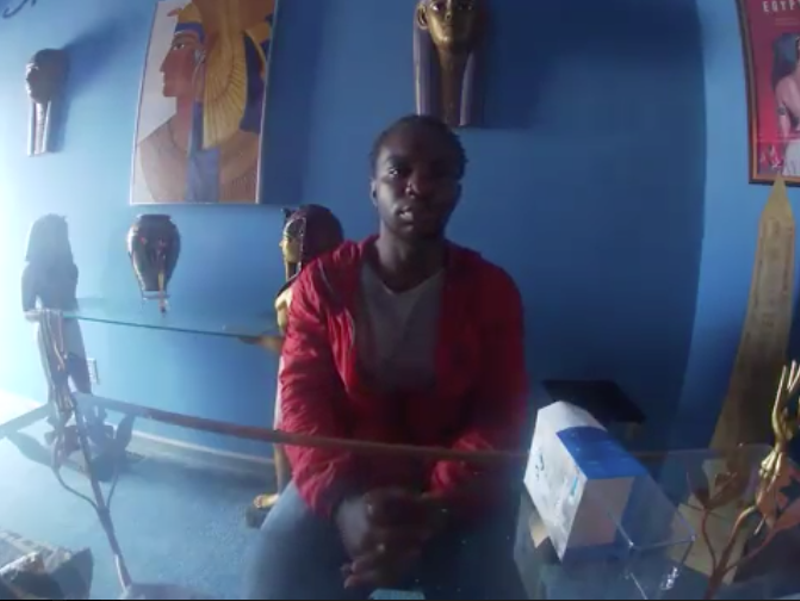
Shelton Buchanan
For six weeks, I made every effort to talk to Shelton Buchanan, knocking on doors of addresses associated with him, leaving notes on stoops when no one answered. We've had two very brief phone calls. Both times he hung up on me. I tried to contact people I thought might be related to him. After a few days of doing this, he texted, "don't come to my house anymore. that's my only time saying it."
The private detective who took the videotaped statement said he had no trouble getting ahold of Buchanan. Buchanan actually called him. He was homeless at the time, staying at a temporary shelter the city had set up on North Tucker Boulevard. The investigator, who asked not to be identified in this story, says he picked Buchanan up, and they drove back to the investigator's home, where Buchanan gave his statement.
The initial frames of the video show Buchanan setting up the camera and turning it to face himself. "The screen's gone blank," says the investigator at one point. Buchanan waves away the concern. "It's still recording," he says and keeps talking. The investigator is asking the questions, but if the video could be said to have a director, it's clearly Buchanan.
The investigator asks Buchanan why back in the ambulance in 2009 he brought up Key's name as the shooter.
"He had just got released from jail," Buchanan replies. "I wanted to get back at Felix for something he did with me, pointing me out in a case. So I just brought his name up." Buchanan is referring to the six months he spent in jail, unable to make bond, after Key had told police that Buchanan had been one of the people who beat him unconscious.
In the video, taken in April 2019, Buchanan looks much younger, more put together and lucid, than in a booking photo taken two years prior.
Jolliff, along with Key's wife, Latasha Kates, says that over the years Buchanan has vacillated from offering help to at other times being flaky and uncommunicative. At one point, Jolliff says Buchanan asked her for a few thousand dollars to recant his testimony.
"To be honest, if I had $2,500 to get my baby out of jail, yeah, I'd probably have done it. Sure. But at the time, it wasn't doable," she says.
"You realize that would have been bribery and have changed the whole case?" says Michael Abernathy, an investigator the Key family has recently hired.
"Yeah, I thought about that. But I also thought about my flesh and blood and him doing 28 years."
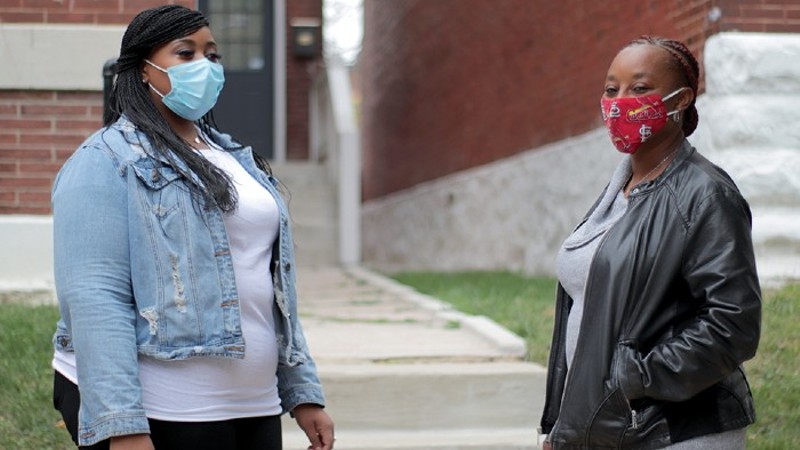
Earlier this year, Buchanan again texted Kates asking her for money for his cooperation. He sent her his CashApp account and then, a few hours later, a different account to send money to. "If I ain't got dat by Sat I'm done with it," Buchanan wrote. "Real talk."
Kates and Jolliff say neither of them paid Buchanan anything and he slipped out of contact again.
The investigator who filmed Buchanan's statement says Buchanan was in no way compensated for speaking with him. The only money that has ever changed hands has been from Buchanan to Key. In 2014, out of the blue, Buchanan put $40 on Key's commissary, according to inmate records.
To this day, Key's old rival remains a maddeningly elusive figure.
Private investigators and Key's family members who have spoken to Buchanan describe a man torn between a guilty conscience and a fear of going to jail for perjury. All of this is complicated by addiction issues.
A source in the St. Louis Division of Corrections tells me that Buchanan has come into city facilities multiple times for detox treatment. In July 2017, he was arrested for shoplifting liquor from the Schnucks downtown and for unlawful use of drug paraphernalia. Ten days later, he was arrested again at the same store for again attempting to steal alcohol.
Buchanan is not the sort of man in whose hands anyone would choose to trust their freedom. But the reality for Felix Key is that this erratic ex-rival from his teenage years is his best hope of being released before the end of his sentence, which, as of right now, is not set to expire until 2039.
"I'm going on twelve years of being incarcerated for this," Key told me. "I haven't got a chance to do anything with my life."
The second time Buchanan and I talked, the conversation lasted about 30 seconds over a scratchy connection. I reiterated that I was writing a story about him and Felix Key and had been talking to Key's family.
"I don't want nothing to do with that," he said. "They know what's up."
"What do they know?" I asked.
He'd already hung up.
Ryan Krull is a freelance journalist and assistant teaching professor in the department of communication and media at the University of Missouri-St. Louis.

